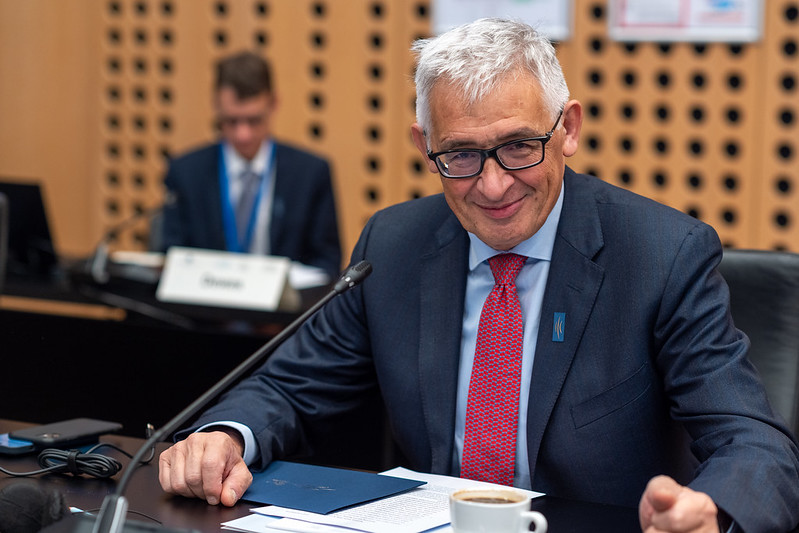ECB’s Cipollone: Tariffs Could Be Disinflationary for Euro Area over Short to Medium Term
29 April 2025

By David Barwick – FRANKFURT (Econostream) – European Central Bank Executive Board member Piero Cipollone on Tuesday said that while tariffs would clearly dampen euro area growth in the medium term, their impact on inflation was less obvious and could be disinflationary.
In a speech at a conference organised by the Bank for International Settlements, the Bank of England, the European Central Bank and the International Monetary Fund, Cipollone said that elevated uncertainty was an immediate consequence of the fragmentation of the global economy and was holding back investment and consumption.
ECB research found that the high uncertainty around trade policy could cut corporate investment in the euro area by 1.1%, slashing 0.2 point from real GDP growth in 2025-2026, he said.
‘Over the medium term, tariffs are set to have an unambiguously recessionary effect, both for countries imposing restrictions and those receiving them’, he said. ‘The costs are particularly high when exchange rates fail to absorb tariff shocks, and some evidence suggests exchange rates have become less effective in this role.’
It was less clear how trade fragmentation would be felt in terms of inflation, he said. Exchange rates, how companies react and what happens to wages would all influence the outcome, he said.
‘The short to medium-term effects may even prove disinflationary for the euro area, where real rates have increased and the euro has appreciated following US tariff announcements’, he said.
Although most models had assumed the dollar would strengthen, cushioning the inflation impact of tariffs on the US and enhancing it for other countries, the opposite has been the case, he said.
In an atmosphere of fragmentation-induced supply shocks, monetary policy communication ‘needs to acknowledge the uncertainty and trade-offs we face while giving a clear sense of how we will react depending on the incoming data’, he said. ‘This can be done by making use of scenario analysis and providing clarity about our reaction function, as emphasised recently by President Lagarde.’
According to Cipollone, the growing fragmentation of the global economy was ‘likely to only be the beginning – potentially profound medium and long-term consequences for growth, stability and prosperity can be expected.’
In the context of unclarity about what stable trading system would emerge from the current volatile and uncertain situation, US markets had ‘not been playing their usual role as a safe haven in this particular episode of stress’, he said. ‘This potentially has far-reaching longer-term implications for capital flows and the international financial system.’
